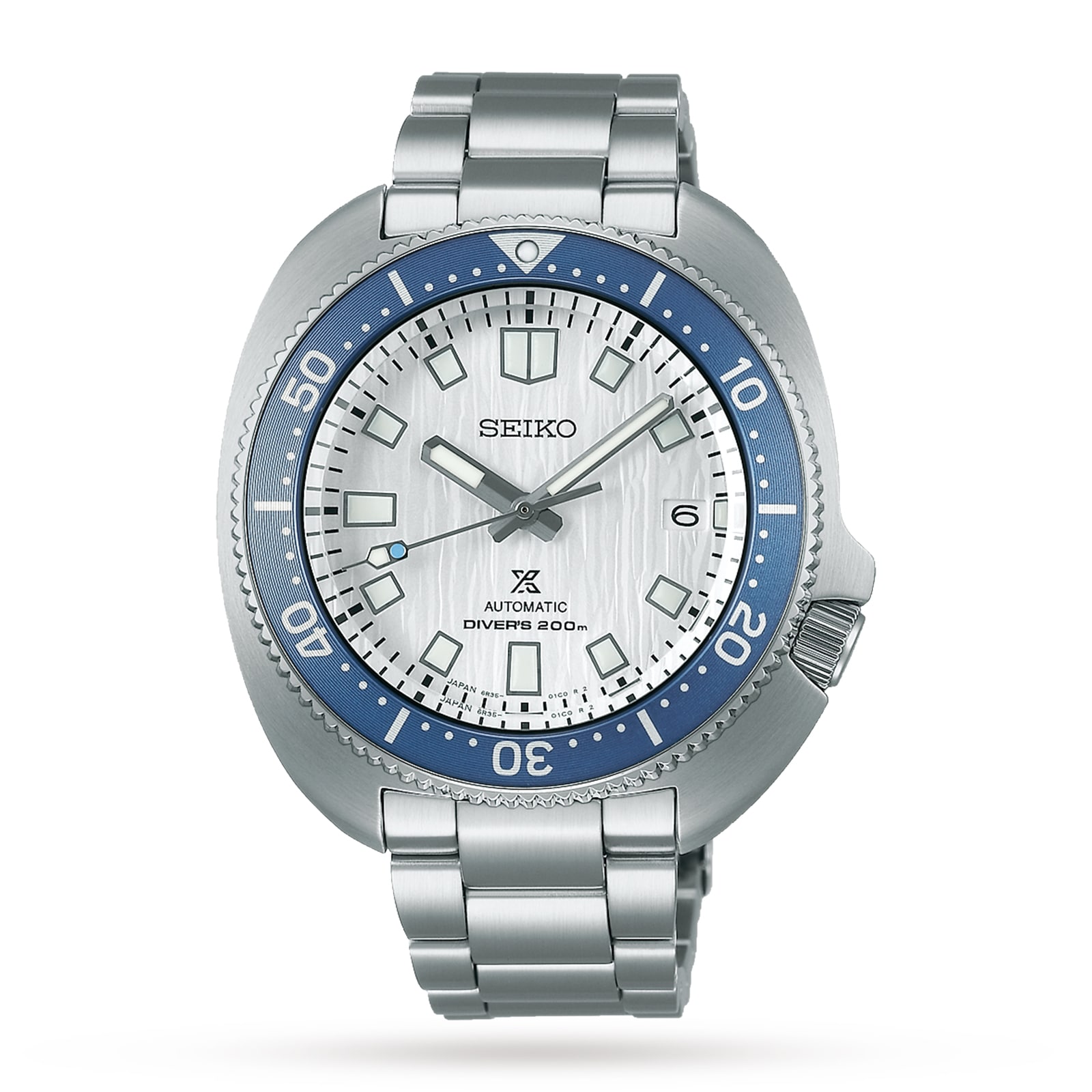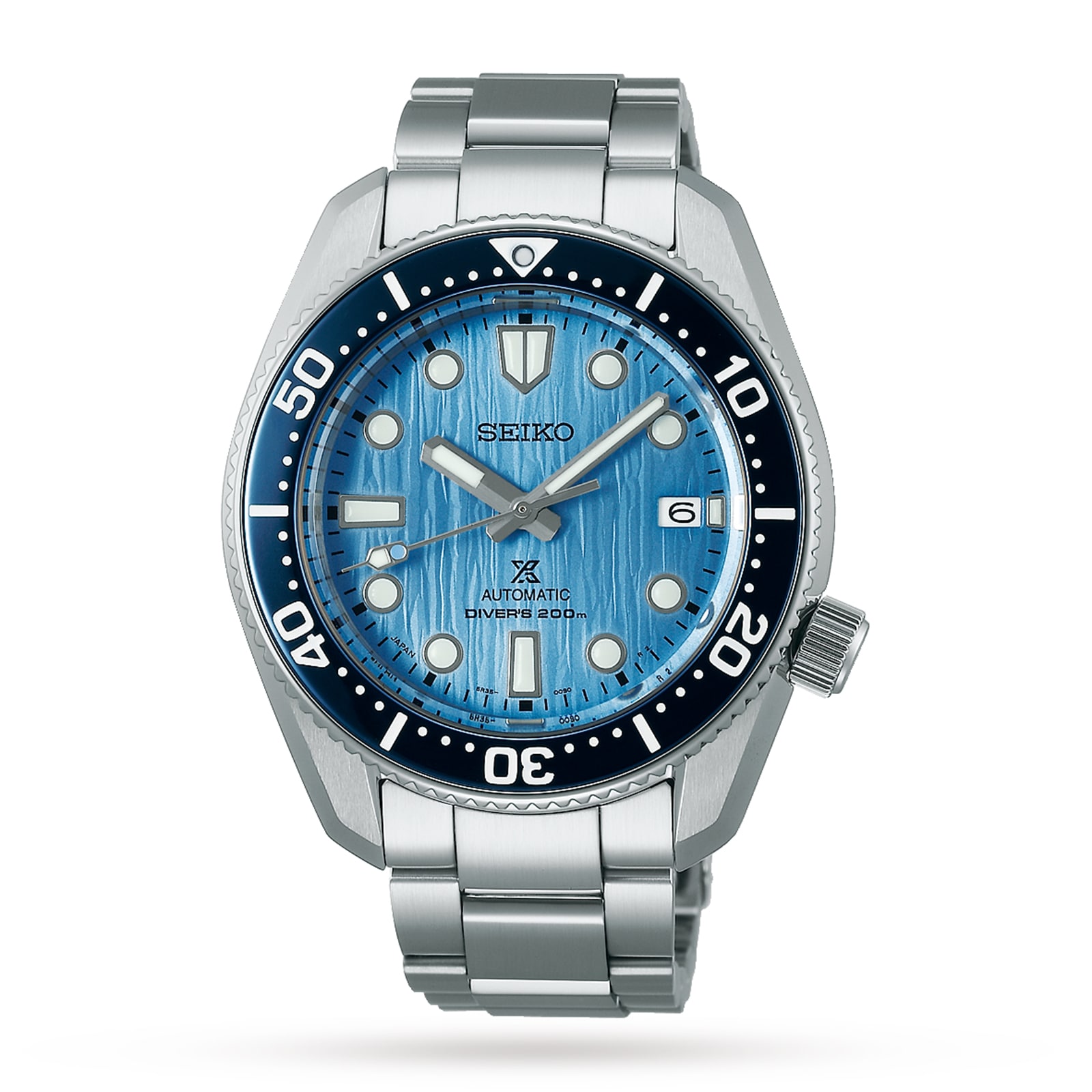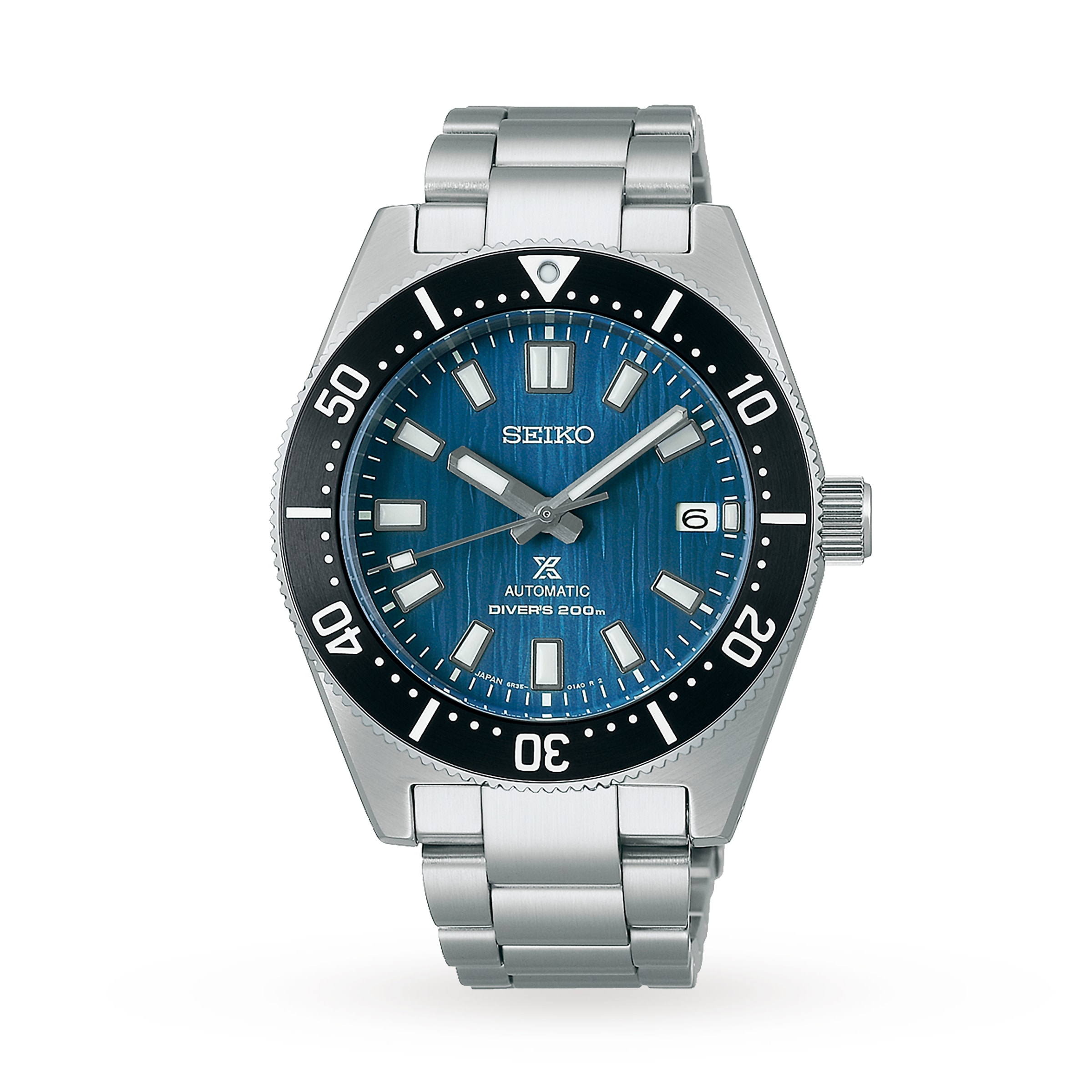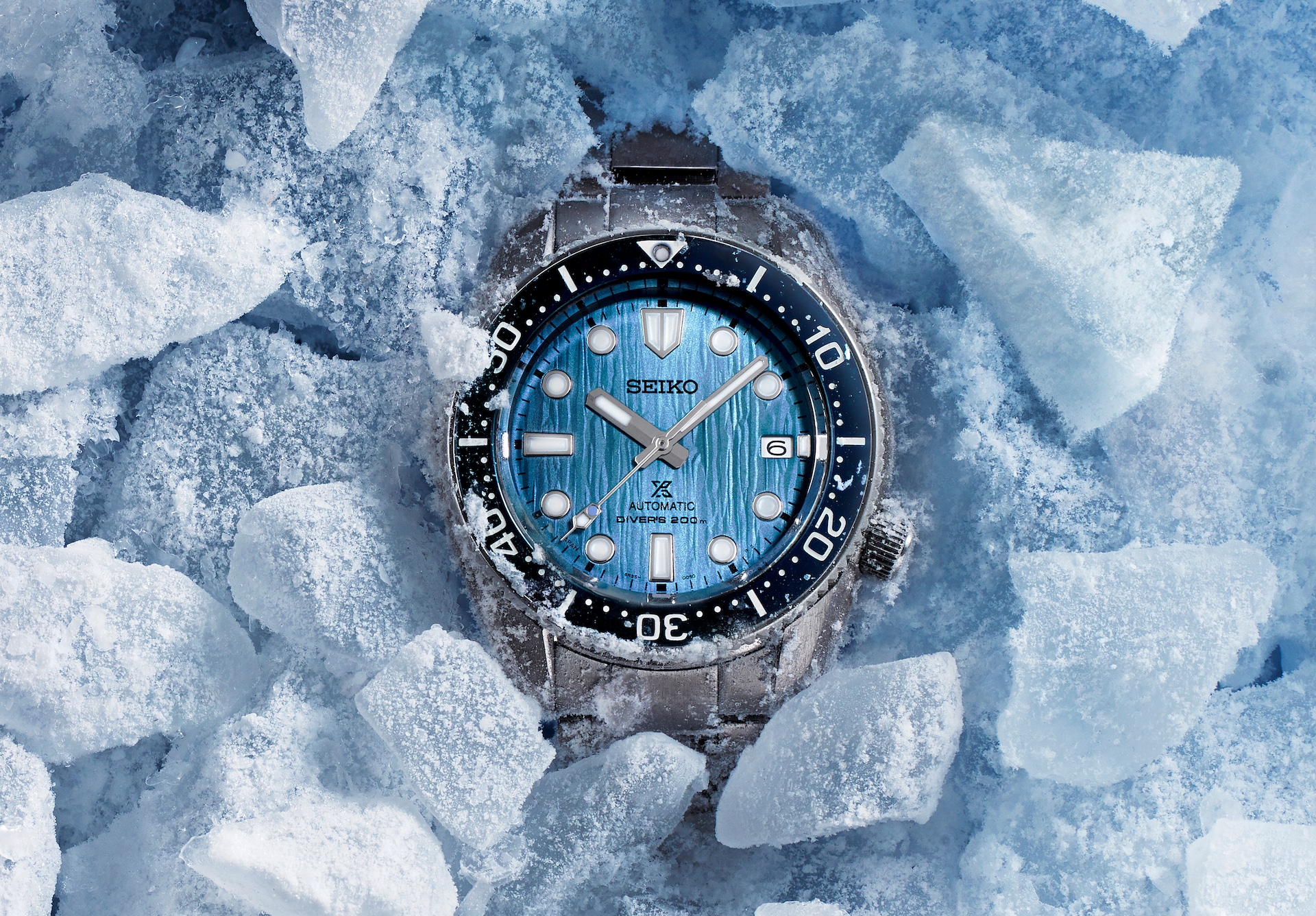
Seiko diving watches have been put to the test in several extreme conditions – not just for diving - and have proved themselves on numerous occasions through being worn by adventurers and explorers. The three Prospex Glacier designs take inspiration from three key moments in Seiko’s history: the first Japanese diver’s watch in 1965, the 1968 300m diver’s watch, worn for the first Japanese summit of Mount Everest, and the 1970s Diver’s watch worn by Japanese explorer Naomi Uemura during his solo dog sled from Greenland to Alaska, a journey of 12,500km. Today we sit down with the design director of Seiko, Takumi Kishino to discuss more about the Seiko Prospex Glacier Collection.
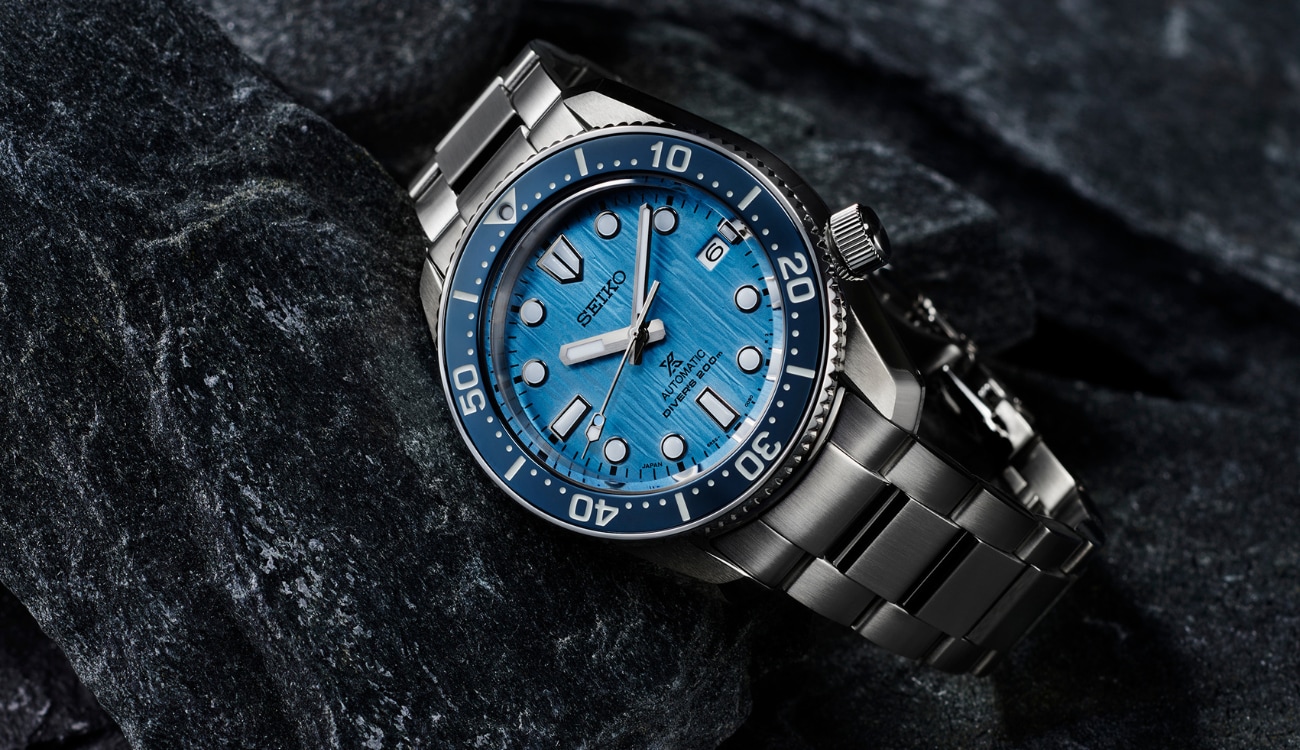
The Design – an interview with Takumi Kishino, Design Director
Thank you so much for sitting down with us Takumi. Let’s get into the design of the collection. The Glacier dials are very intricate, they each have 2,000 surfaces, how are they created? Are there 3D or laser printers involved?
The design is based on the composition of a glacier - we created the base mapping of each element of the dial’s uneven texture using 3D modelling. Based on that data, the dial mould is created by machine cutting.
Real Glacier scans were used as part of the dial design process, How were these used in the recreation of the texture?
We created the overall texture by combining plating and colour-coating techniques on an unpolished dial surface. One of the central features of the dial pattern is the random reflection of light which enhances the dial’s unique surfaces.
How was the first dial prototype created?
The prototype was created in a similar way to the final dial design. Since our watch dials are made from a complex combination of colour, material, and finishing elements, prototypes are made in much the same way as for a larger production quantity, to ensure they are as attractive as possible.
How many versions of the dial were created until the final texture was achieved?
Counting from the initial design stage, we went through several dozen dial versions, out of which four patterns were manufactured as prototypes using actual materials to reach the final decision.
What methods were used in the creation of the dials?
We use machine cutting techniques to create a three-dimensional base model based on 3D data. Through careful checking and repeated adjustments, we created a dial in which the random reflections of light give the impression of naturally formed glaciers.
Finally-each dial is inspired by the colours of glaciers, how were these achieved?
The colour of the dial is created through a complex combination of plating and painting.
The Design – an interview with Takumi Kishino, Design Director
Thank you so much for sitting down with us Takumi. Let’s get into the design of the collection. The Glacier dials are very intricate, they each have 2,000 surfaces, how are they created? Are there 3D or laser printers involved?
The design is based on the composition of a glacier - we created the base mapping of each element of the dial’s uneven texture using 3D modelling. Based on that data, the dial mould is created by machine cutting.
Real Glacier scans were used as part of the dial design process, How were these used in the recreation of the texture?
We created the overall texture by combining plating and colour-coating techniques on an unpolished dial surface. One of the central features of the dial pattern is the random reflection of light which enhances the dial’s unique surfaces.
How was the first dial prototype created?
The prototype was created in a similar way to the final dial design. Since our watch dials are made from a complex combination of colour, material, and finishing elements, prototypes are made in much the same way as for a larger production quantity, to ensure they are as attractive as possible.
How many versions of the dial were created until the final texture was achieved?
Counting from the initial design stage, we went through several dozen dial versions, out of which four patterns were manufactured as prototypes using actual materials to reach the final decision.
What methods were used in the creation of the dials?
We use machine cutting techniques to create a three-dimensional base model based on 3D data. Through careful checking and repeated adjustments, we created a dial in which the random reflections of light give the impression of naturally formed glaciers.
Finally-each dial is inspired by the colours of glaciers, how were these achieved?
The colour of the dial is created through a complex combination of plating and painting.
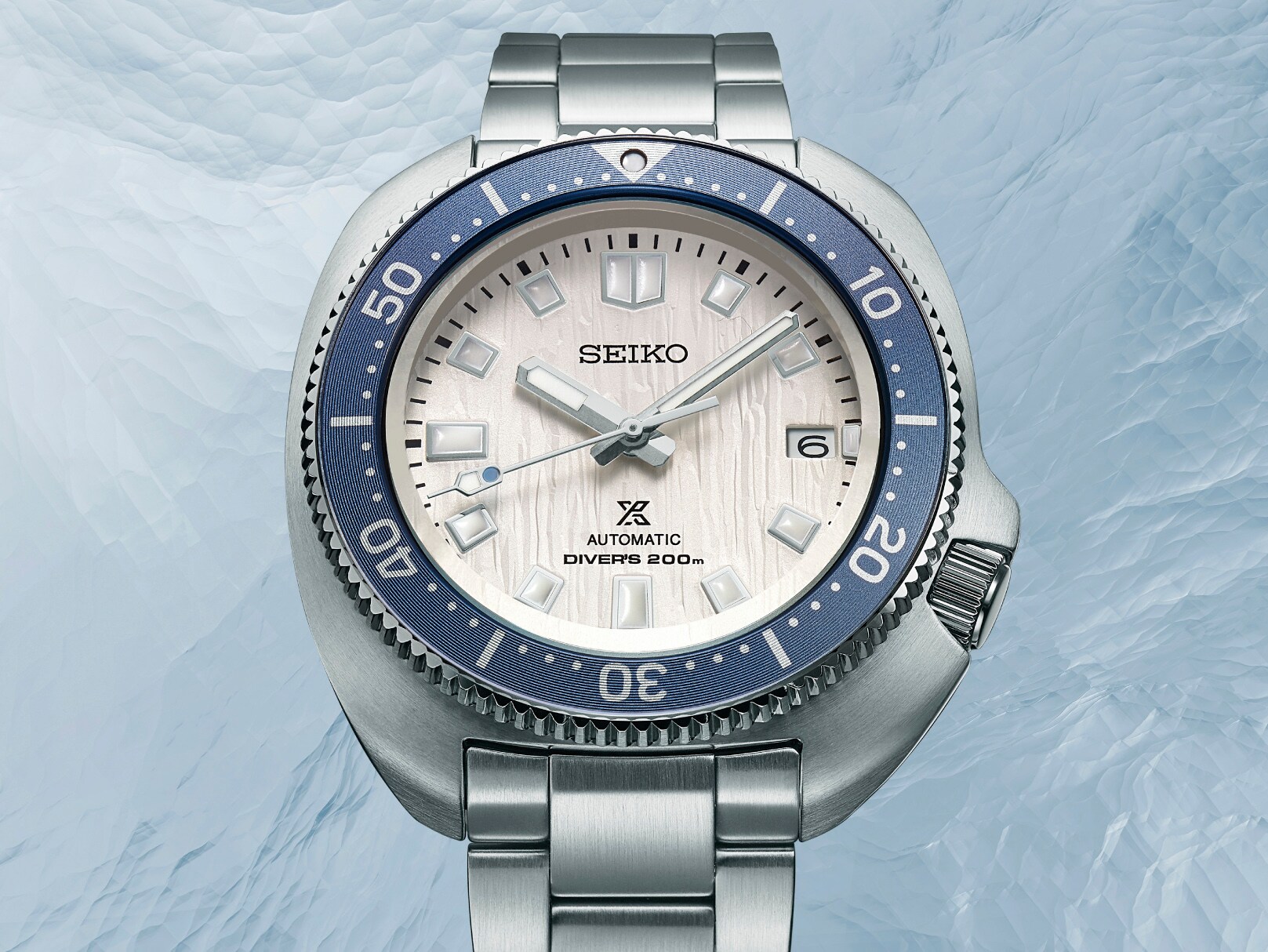
Seiko’s Diving Innovations & Technical Expertise
Seiko is well known for innovation in design, in particular in diving watches, where several technical advances have been made – and adopted widely by the watch industry - to improve the functionality of diver’s watches and enable them to be used in high saturation diving. Seiko’s innovations and inventions include:
The Helium L shaped gasket
The innovation of the ‘L shaped gasket’ prevented helium from entering the watch entirely. This was a first in the industry and meant there was no need for the kind of helium escape valve used by other watchmakers for divers to manually equalise the pressure between the inside and outside of the watch after diving.
Lumibrite
LumiBrite was developed by the Seiko Watch Corporation, it is the glow in the dark, luminous element on the dial of diving watches. LumiBrite is bright, long-lasting and completely free of radioactive substances. It lasts for 3-5 hours, more than 10 times longer than conventional luminous paint, making it ideal for diving watches.
70 Hour Power Reserve
The average automatic power reserve is around 40-50 hours, but with the creation of the Seiko calibre 6R35 it was increased to 70 hours. The calibre is an updated version of the 6R15 with a 20 hour power reserve increase. This is due to the more efficient movement, achieved by using a different mainspring component and by increasing the jewel count to 24.
Seiko’s Diving Innovations & Technical Expertise
Seiko is well known for innovation in design, in particular in diving watches, where several technical advances have been made – and adopted widely by the watch industry - to improve the functionality of diver’s watches and enable them to be used in high saturation diving. Seiko’s innovations and inventions include:
The Helium L shaped gasket
The innovation of the ‘L shaped gasket’ prevented helium from entering the watch entirely. This was a first in the industry and meant there was no need for the kind of helium escape valve used by other watchmakers for divers to manually equalise the pressure between the inside and outside of the watch after diving.
Lumibrite
LumiBrite was developed by the Seiko Watch Corporation, it is the glow in the dark, luminous element on the dial of diving watches. LumiBrite is bright, long-lasting and completely free of radioactive substances. It lasts for 3-5 hours, more than 10 times longer than conventional luminous paint, making it ideal for diving watches.
70 Hour Power Reserve
The average automatic power reserve is around 40-50 hours, but with the creation of the Seiko calibre 6R35 it was increased to 70 hours. The calibre is an updated version of the 6R15 with a 20 hour power reserve increase. This is due to the more efficient movement, achieved by using a different mainspring component and by increasing the jewel count to 24.
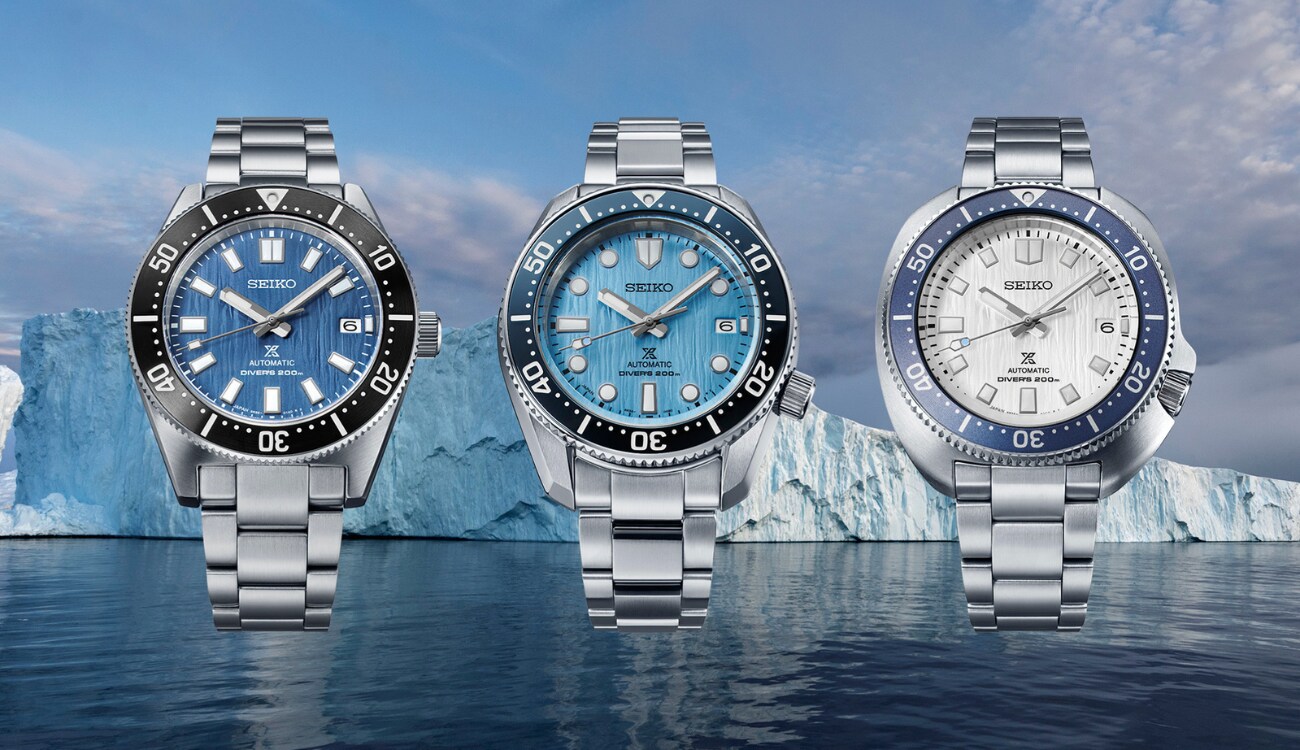
Giving Back- Saving the Ocean
The Prospex Glacier designs are part of the wider ‘Save the Ocean’ collection, sales proceeds from which are donated to the PADI Aware charity, devoted to ocean conservation. Seiko Prospex also partners with PADI in a world exclusive timepiece collection; the only watches featuring the organisation’s logo and colours. PADI, the Professional Association of Diving Instructors, is the world’s largest ocean exploration and diver organisation enabling people around the world to seek adventure and save the ocean through underwater education. The Prospex mission of seeking adventure is embodied in in PADI’s global commitment to ocean health.
Giving Back- Saving the Ocean
The Prospex Glacier designs are part of the wider ‘Save the Ocean’ collection, sales proceeds from which are donated to the PADI Aware charity, devoted to ocean conservation. Seiko Prospex also partners with PADI in a world exclusive timepiece collection; the only watches featuring the organisation’s logo and colours. PADI, the Professional Association of Diving Instructors, is the world’s largest ocean exploration and diver organisation enabling people around the world to seek adventure and save the ocean through underwater education. The Prospex mission of seeking adventure is embodied in in PADI’s global commitment to ocean health.
Discover more from Seiko here at Mappin and Webb.
Discover more from Seiko here at Mappin and Webb.
